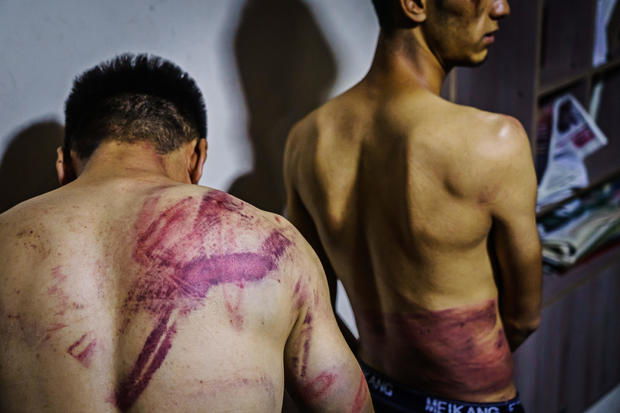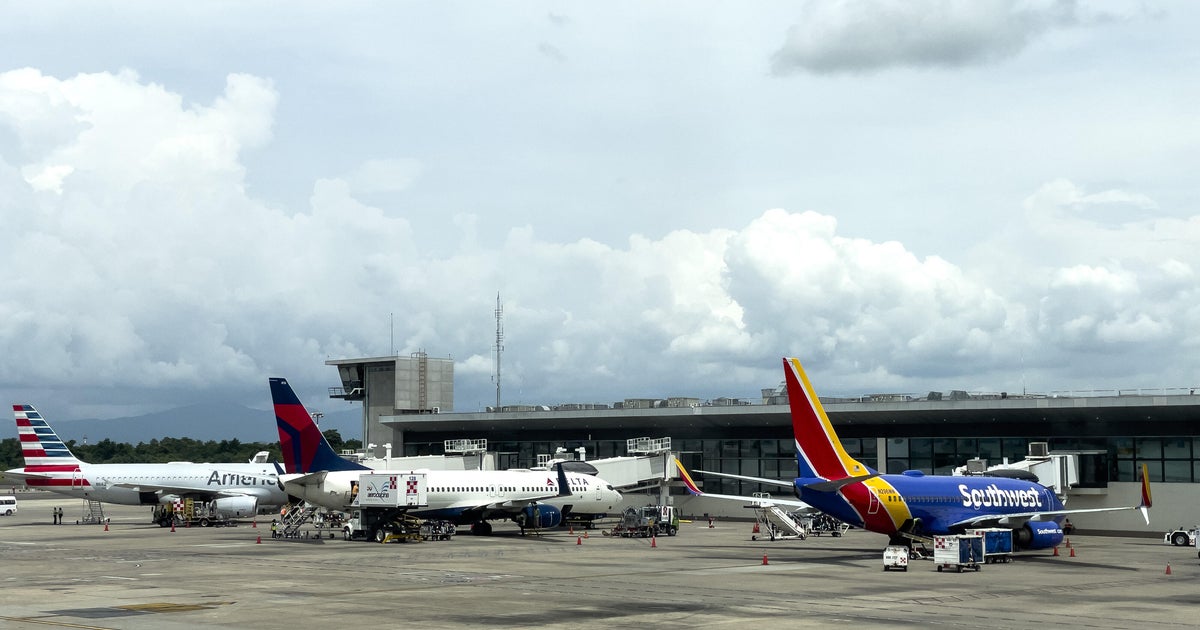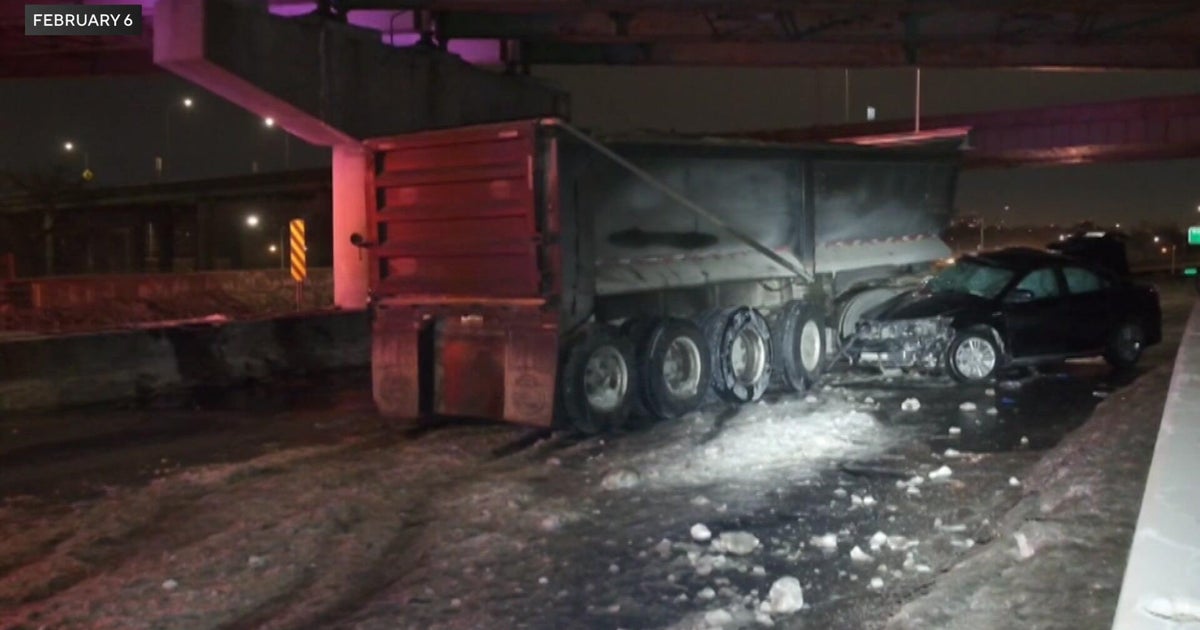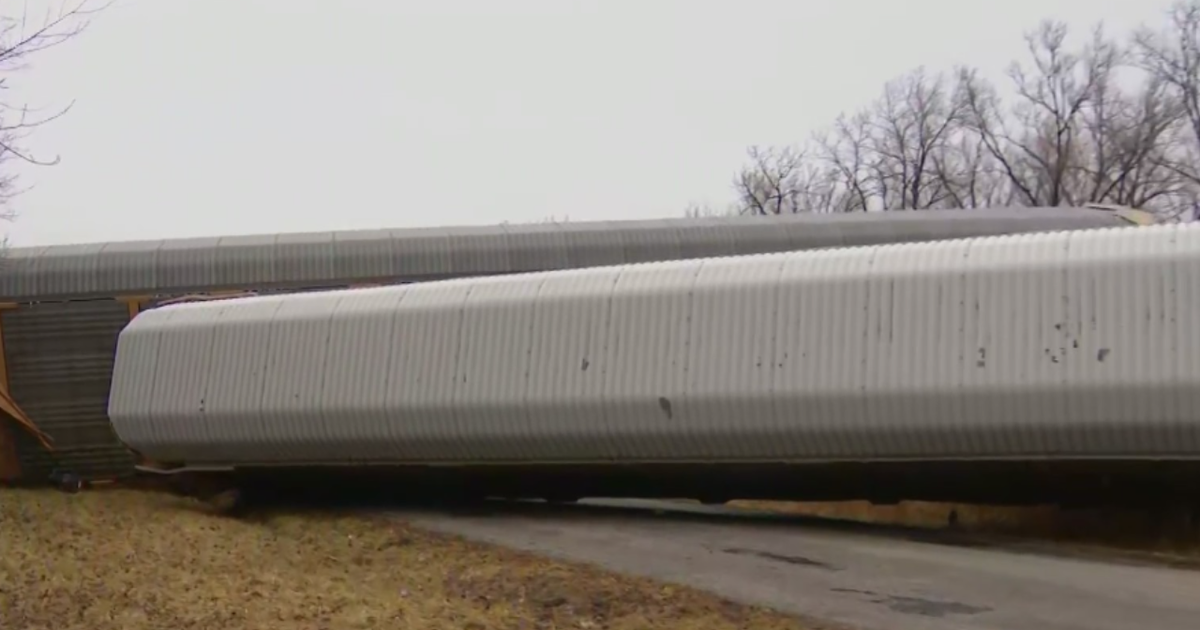Taliban's brutal crackdown on dissent turns deadly as evacuations continue at a snail's pace
On the Afghanistan-Pakistan border — A White House official described Afghanistan's new hardline Taliban rulers on Thursday as having "been businesslike and professional" in allowing the first flight out of Kabul since the former insurgency seized control of the country. National Security Council spokesperson Emily Horne called the flight, which carried about 200 people, including 10 U.S. citizens and 11 U.S. residents to Qatar, "a positive first step."
Another flight was expected to leave Kabul on Friday carrying a similar number. But as CBS News correspondent Charlie D'Agata reports, it's not at all clear how regular flights out of the country will be. And there are still foreigners, and many at-risk Afghans, desperate to get out of the county.
D'Agata was at the Torkham border crossing in Pakistan on Friday, and he could see Taliban guards and flags on display on the other side. The border remained closed. Pakistan has refused to accept any Afghan refugees until there's a coherent international plan to provide shelter for them in third countries.
There have been no large crowds of would-be refugees gathering at the Pakistani border yet — it's a dangerous journey to even get that far — but fear is mounting that if the Taliban continues to use violence to cement its control over Afghanistan, more people will take desperate measures to flee the country.
Since the U.S. withdrawal finished on August 31, it's been difficult to confirm exactly how harshly the Taliban is re-imposing its brand of Islamic Sharia law. But a steady stream of pictures and videos from inside the country paint a chilling picture of what Afghans are fleeing from.
The United Nations said on Friday that the militants' crackdown on dissent had already turned deadly. The U.N. said the Taliban had responded to large street protests earlier this week with blows from sticks and whips, and live ammunition. At least four people were killed, the global body said.
After seeming to tolerate, or at least failing to stymie, large demonstrations early this week, the Taliban issued an outright ban on public protests.
Even journalists trying to cover the displays of public outrage were subjected to brutality. Two Afghan reporters said they were detained and tortured by the Taliban for covering women's protests. Photos of the men posted online showed dark bruises across their backs.
For all their talk of tolerance and inclusivity in the days leading up to and immediately following their takeover, the Taliban has already banned music, and women from playing sports.
After promising to form a new government representative of the entire nation, the Taliban announced its new government this week, without a single woman in the cabinet. The regime is packed instead with the more-hardline elements of Taliban leadership, including the leader of the feared Haqqani network.
Sirajuddin Haqqani has a $10 million FBI bounty on his head — wanted for his alleged role in terrorist attacks on civilians, and U.S. and Afghan forces, over the course of almost two decades.
Now he's in charge of Afghanistan's internal security services. Far from making any apologies for appointing a man wanted for mass-murder, the Taliban issued a statement this week demanding that he be taken off U.S. government "blacklists."
The immediate concern for the U.S. government remains getting Americans and Afghans who helped the war effort over the last two decades out of the country.
Some of those people have been trying for more than a week to board six charter planes ready to go at an airport hundreds of miles north of Kabul, in Mazar-i-Sharif. U.S. officials have told CBS News that they're still working with the Taliban to facilitate a departure for those individuals, but that the efforts have been complicated because not all of the people trying to leave have valid travel documents.
Those still trapped in the country will be hoping, against the odds and evidence, that the Taliban acts more "businesslike," and less brutal in the days and weeks ahead.





